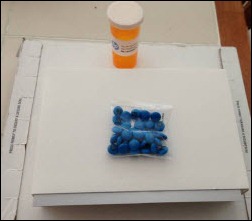"A valid concern..." Oh please. Everyone picks the software they like and the origin of that software is an afterthought.…
Monday Morning Update 2/18/13

From Man Show: “Re: VA CIO Roger Baker. Resigning, just heard it on a conference call.” Verified, although not by the VA, which didn’t respond to my inquiries Friday. An internal memo says he’s resigning for unspecified reasons at an unnamed date. We could take bets on which government contractor will end up hiring him, like his previous employers Dataline and General Dynamics. He’s done a good job and will be hard to replace.
From Friend of ONC: “Re: RECs. Innovative shift from government seed capital to sustainable operating models. ONC is starting to work with the 62 RECs to co-develop sustainability models, business plans, and new service lines for the post grant-funded era and the 140,000 providers they work with.” Weaning organizations (and citizens, for that matter) off free taxpayer money has been a challenge, most notably with HIEs. It will be interesting to see if the same problem arises with HITECH-motivated medical practices since everybody assumes that once you’re on an EMR, you won’t go back to paper, although the Medicare penalty stick may provide the necessary motivation after the MU carrot has been consumed.
From Joshajust: “Re: [vendor name omitted]. In contract disputes with multiple hospitals in South Carolina over the failure of their computer-assisted coding module, which doesn’t appear to work.” It wouldn’t be fair to run the company’s name without some kind of proof of the specific disputes. If you have any, please send it over.
From LinkedIn Stalker: “Re: premium membership. I was grandfathered in with a lower-cost premium membership which allows me to see who’s viewed my profile, as well as an expanded range of searches. As a sales and marketing executive, I find it invaluable as a means of research and connecting to people of interest, although I am always sure to personalize my connection request.” LinkedIn has had more luck than most freemium sites in getting users to pony up for optional services. Facebook seems to be losing the attention of its users to some degree, so while it waits to be marginalized by a trendier newcomer like MySpace before it, it could always use LinkedIn’s model of charging people to see who’s checking out their Facebook, which might be a lot more lucrative given its higher population of psychotic former lovers, stalkers, and narcissists.
From Telluride Tom: “Re: your day job. Why don’t you quit? You’ve done it long enough. Sponsors and consulting could offset.” I like working for an academic medical center and I really believe that patient outcomes would be at least a zillionth of a percentage point less positive if I left. I would also be loath to leave the playing field to join the healthcare-inexperienced commentators blabbing endlessly from the safety of the announcer’s booth. I don’t know that I could make HIStalk better by devoting even more time to it since I already have people who help me, but I would if I needed to. I’ve been doing what I enjoy doing for 10 years without regard to workload, money, etc. and it’s mostly working OK except it doesn’t make very interesting obituary material.
From LabRat: “Re: University of Iowa. Rumor is their Epic Beaker LIS install isn’t going well so far. Beaker needs a big win in a complex academic environment for market credibility.” Unverified. Epic seems to have been forthright in identifying appropriate candidates for Beaker, which if it follows the trajectory of all previous Epic modules, will quickly move up the food chain from barely usable to top rated as Epic sends in its cadre of youthful ground troops to earnestly learn from early adopters. Lab is probably the toughest market to crack given well-established workflows, FDA oversight of instrument interfaces, and the department’s full use and utter dependence on its technology, all of which have been well served for decades by best-of-breed LIS vendors and long-perfected interfaces. Lab also covers broader territory than outsiders appreciate, including microbiology, anatomic pathology, molecular diagnostics, cytology, blood bank, outreach, transfusion, and a host of activities that I don’t claim to understand. Folks frustrated with sketchy usage and questionable benefits of other hospital systems should visit the lab to see what can happen when you combine a small group of motivated, analytical, and focused employees performing repetitive tasks using purpose-built technology that achieves both increased task efficiency and improved patient care. When it comes to improving patient care with technology, the showcase hospital departments are always lab, pharmacy, and radiology. Those areas are small in number, focused in mission, and are not only accepting of technology but fans of it.
UPDATE: UI Health Care CIO Lee Carmen provided a response:
Regarding the reported rumor of issues with Epic Beaker install at University of Iowa Hospitals and Clinics. I am the CIO for UI Health Care, and I can report the project is proceeding as planned. There are a few aspects of this project that Epic has not dealt with at other Beaker sites, but we have a positive, constructive dialogue underway and I am confident we will find a way to meet the needs of our laboratory operations and have a successful Beaker install.
From HIMSSGoer: “Re: HIMSS vendor propaganda. Today HP sent me 45 M&Ms in a large Fedex box.” Funny you mention that — the same box was dropped on my doorstep, and before I read your e-mail, I also took a photo and counted the M&Ms. My photo above hardly does justice to HP’s massive waste of packaging and carbon. Inside the large Fedex box was an expensive-looking inner box, shrink wrapped and packed with air pillows. Inside that was a pill bottle, and inside that was a tiny bag of HP-imprinted M&Ms that was so resistant to opening that I had to use the same knife I needed to hack through the shrink wrap. Mrs. H did a double-take at the kitchen table full of junk as though I had just opened a package containing a human ear. I bet the whole matryoshka doll-type package cost HP at least $30 to send out, which is a lot for a small bag of M&Ms that bled blue ink over my fingers since imprinted M&Ms don’t have the usual “melts in your mouth, not in your hand” waxy coating. The subject of the pitch was the new ElitePad, an alternative to the iPad that (a) costs more; (b) runs Windows 8; and (c) is made by a famously struggling company that yanked its consumer tablet off the market six weeks after its launch in 2011. All three factors will probably reduce consumer interest to near zero, but maybe HP will sell a few to Apple-phobic IT shops willing to support Windows 8. If so, I don’t think it will be because of the M&Ms.
I’ve been too busy to do a music playlist lately, so I’ll recommend just one band this time: The Thermals, highly listenable and tight indie punk from Portland, OR. Kudos to the three-member band for recording live straight to tape and directly mastering from it instead of screwing around with computers and overdubs. My legs are doing faux kick pedal drumming as I listen to their excellent KEXP videos on YouTube and every one of their 60 or so tracks on Spotify. Best music I’ve heard in some time.
HIMSS Conference Social Events
Omnicell will offer beer and wine in Booth # 8141 Monday and Tuesday from 4:00 to 6:00. Betsy told me she can’t comment on the quality of the beer, but she says the price is right.
Three-quarters of poll respondents say the government should issue a national patient identifier, although few of those respondents have ever sought the votes of wary constituents. New poll to your right: is the amount of HIMSS-related vendor contact you’re getting too little, about right, or too much?
For the HIMSS vendor contact, I’m going to go with “about right” since it’s easy for me to toss mail-out cards without even looking at them, which I’ve done with every one of them that have arrived. I always toy with the idea of choosing some vendor at random from the HIMSS list who’s exiled to a tiny booth in the Siberia part of the exhibit hall and then imploring my readers to show up there at a designated time just to give them hope. Every year I purposely walk those seldom-trod paths and chat with the untouchables, although in many cases they’ve already given up and either left their booth unattended or repurposed it as a place for their reps to sprawl back and play with their phones. Inga, Dr. Jayne, and I are good mystery shoppers, telling you the good and the bad booth behaviors we observe during the conference.
Welcome to new HIStalk Platinum sponsor InstaMed. The Philadelphia-based company’s integrated healthcare and payments network has been chosen by 400 hospitals and 60,000 practices who wanted to collect more patient payments, get paid faster, and reduce the time and complexity involved in collecting what’s owed to them. Everything from eligibility to claims can be managed on the company’s cloud-based portal, while patients get their own portal for receiving electronic statements, making payments, and setting up payment plans. Other tools include eligibility, a patient payment estimator, converting scanned checks to eChecks, claims management, remittance management, and electronic remittance. A just-issued case study describes the experience of Aspen Valley Hospital (CO), which used InstaMed to increase front office payments by 124 percent over five years and reduce payment processing administrative time by 65 percent. Good Samaritan Hospital (IN) cut statement costs by 25 percent and reduced administrative time in handling credit card payments by 90 percent. Lots of testimonials, including names, are here. Thanks to InstaMed for supporting my work.
England’s Rotherham NHS Foundation Trust halts new go-lives of Meditech, citing “persistent serious issues” that include “clinician and staff acceptance and usability.” Overseers say The Rotherham is falling short on financials because the system can’t book appointments effectively, also saying they can’t trust Meditech’s coding, case mix, and activity data. The trust went live last year two years behind schedule, expecting to spend $62 million over 10 years on Meditech as one of the first trusts to bypass NPfIT-provided systems in choosing their own. Excellent reporting by eHealthInsider.
Also in England, Royal Berkshire Hospital is reported to be close to shutting down Cerner Millennium because of higher-than-expected ongoing cost and productivity losses that have frustrated staff and bottlenecked patients. The hospital expected ongoing costs of $2.5 million per year, but the actual annual run rate of the $46 million system is $8.5 million. Patient delays have been so extensive that the hospital offers them parking discounts, free refreshments, and quizzes with which to amuse themselves while waiting.
Our Investor’s Chair guru Ben Rooks weighs in on why companies adopt a majority voting policy for their directors as Allscripts did last week:
This is actually quite shareholder friendly and has become much more common in corporate governance. In contrast to the way boards typically were retained (plurality voting), this says that if most shareholders don’t actively want the director to serve, they need to resign. In effect, inertia and indifference cease to become as powerful forces in retaining directors. I’d view both this step and the expiration of the shareholder rights plan as positive for MDRX shareholders.
The recently reopened Bellevue Hospital Center (NY) diverted trauma patients for 90 minutes Thursday evening when an electrical problem shut down its computer systems for several hours.
Covisint will announce next week an out-of-the-box solution to connect with the Direct Project, which will include Web services APIs to manage message routing, administration, and a secure inbox. Covisint Direct will be market to hospitals, states, RECs, and EMR vendors as a quick way to create a Direct solution for sending CCDs, care gaps, and alerts.
The newly appointed president of the Allegheny County Medical Society (PA) says doctors are spending too much time completing electronic medical records, also noting that her own plastic surgery practice has been forced to change EHRs three times.
A Zimbabwe family’s home remedy of treating wounds with sugar is being tested in British hospitals with some degree of success. Weird News Andy says they use the same sugar on both left and right limbs … because it’s ambidextrose (I won’t rain on WNA’s pun parade by pointing out that table sugar is sucrose rather than dextrose). It’s also not a new practice – hospitals I’ve worked in have used sugar on wounds on rare occasion, sometimes in conjunction with Maalox. Unlike most treatments, at least these are cheap and cause no harm even when they don’t work.
Sponsor Updates
- Intermountain Healthcare will feature TeleTracking’s RTLS solutions in an interactive hospital patient room display in HIMSS Booth #1810.
- HFMA member Dan Mandy of Winthrop Resources is featured in a peer-reviewed HFMA article that describes funding options for IT capital expense.
- Philips Healthcare CMIO/CTO Joseph Frassica, MD will speak at the HIMSS Interoperability Showcase on Tuesday, March 5 at 11 a.m. I interviewed him last August.
- Intelligent InSites is chosen by en-Gauge as the locating solution for its fire extinguisher and medical oxygen monitors.








It must be rough to have a plastic surgery office that can AFFORD to switch EHRs three times.
I can count the number of primary care practices I know who have had the ABILITY to switch only once ontwo hands…yet, I know hundreds who would love to switch now.
It is.great to live in a capitalist country where you can choose your profession, your EHR, to hire experts to.help you choose your EHR and to speak freely.
My HP M&Ms were green, and they were kind of cracked and smashed up so I guess those air pillows didn’t help protect the package much. They did stimulate the economy though, I guess.
I am disappointed Roger Baker is leaving the VA. He was good for the patients.
The coding problems in South Carolina hospitals are interesting. There was an article that at least one hospital profited by the coding engines with improved charge capture: http://www.healthcareitnews.com/news/south-carolina-hospital-funds-ehr-upgrade-and-cpoe-13m-reaped-charge-capture
That is not chump change, so you can see why there may be lawsuits for coding failures.
As for the plastic surgeon who is a medical society president, perhaps she was taking advantage of innovation afforded by the newer systems, or perhaps, one or more of the vendors were bought out or closed shop. Just wondering.
My styrofoam and m&m’s arrived the same day as 10 new iPad mini’s for a deployment of our iPad EDIS. My first thought was, “whoa do we get a free ElitePad with a purchase of 10 iPads?” It took a second for me to realize how strange that would be.
LabRat should not be spreading lies RE: U of Iowa and Beaker. It undermines the credibility of this blog to have such venom be published.
The 2/16/13 post from LabRat is incredibly irresponsible and should be taken down. The University of Iowa is preparing to kick off with Beaker at the end of this month and we look forward to the patient safety and savings that a fully integrated Epic Beaker LIS solution will provide us. We would not kick-off if we were not confident that it could meet our needs.
I love the howling coming from UIHC about Lab Rats’s report. I find your comment to be spot on: “Lab is probably the toughest market to crack given well-established workflows, FDA oversight of instrument interfaces, and the department’s full use and utter dependence on its technology, all of which have been well served for decades by best-of-breed LIS vendors and long-perfected interfaces.”
I know plenty of users who complain, only to be blown off by the well paid hospital administrators, who declare the complaints to be from disgruntled employees, etc.
This reminds me of D. Blumenthal, who abhorred anecdotes when ONC Chief, but now at Commonwealth Fund, in an article about prostheic hip recalls in NY Times today, stated that there is “a need for more immediate ways for doctors to share concerns…”
How does the admin at UIHC treat those who complain, exactly?
Lab rat does not want to be fired, but is voicing concerns.
It is the toughest market to crack as the problems with many of these lab systems include truncated results, unusable formats, interface failures, lost data, no warnings, failed communications, misidentifications, etc.
The problems on the uptick being reported in the UK trusts are similar to the problems being suffered in the US, but here, there is stronger spin and coercion tactics by the Feds, aligned with the vendors, who in turn, are aligned with the hospitals, who hold “peer review” and “code of conduct” dictums over the health care professionals.
Over there, there still are some fearless outspoken folks who tell it like it is and manage to get the news out.
What is most interesting about those reports is that the two featured vendors are from the USA.
Not Tired of Suzy, RN Says:
February 17th, 2013 at 10:52 am
The problems on the uptick being reported in the UK trusts are similar to the problems being suffered in the US, but here, there is stronger spin and coercion tactics by the Feds, aligned with the vendors, who in turn, are aligned with the hospitals, who hold “peer review” and “code of conduct” dictums over the health care professionals.Over there, there still are some fearless outspoken folks who tell it like it is and manage to get the news out. What is most interesting about those reports is that the two featured vendors are from the USA.”
I was thinking the same thing when I read those reports. The facilities in the UK have nothing to lose by being honest. The way systems are sold and acquired in the US result in a mob-like strategy to protect the investment, vendors and facility. The implementations in the UK were probably more seemless then the ones in the US between 2003-2010 when the they were all a big cluster. The UK benefits from the improvements and lessons learned since that time.
The link to the article featuring Dr. Blumenthal that was mentioned by Libby R is here:
http://www.nytimes.com/2013/02/17/sunday-review/the-hip-replacement-case-shows-why-doctors-often-remain-silent.html?ref=health&_r=0
I agree with Lizzy. Funny he should declare that now but not when he was running ONC. This concept interfaces with the problems in the UK. They need a forum also because the adverse events seen by the clinicians have taken a back burner to the money and other arbitrary targets set by the NHS.
This blog has published comments mentioning that Blumenthal settled a medical malpractice case before he took the ONCHIT job, and it is posted on the Mass DOH website on professionals. Perhaps we could all learn from what happened. He should not remain silent and he should use this blog as a forum to eduacate us all.
Thank you Mr. HIStalk for this informative blog. Keep up the great work, and Inga and Dr. Jayne too.
With regard to LabRat’s comment, Beaker is up and running in a complex academic medical center at the University of Mississippi Medical Center. We have already passed a CAP inspection with zero LIS concerns with Beaker as their LIS.
Funny and quite telling how quickly epic damage control kicked in…
Great perspective to have. Thank you for your dedication.
“I like working for an academic medical center and I really believe that patient outcomes would be at least a zillionth of a percentage point less positive if I left. I would also be loathe to leave the playing field to join the healthcare-inexperienced commentators blabbing endlessly from the safety of the announcer’s booth. I don’t know that I could make HIStalk better by devoting even more time to it since I already have people who help me, but I would if I needed to. I’ve been doing what I enjoy doing for 10 years without regard to workload, money, etc. and it’s mostly working OK except it doesn’t make very interesting obituary material.” Per Mr. H.
Mr. H,
Your HP commentary is worthy of a Pulitzer.
Thank you for all that you do for those of us in the trenches.
RE: HIMSS vendor propaganda. How about HIMSS offering a marketing “opt out” option on registration.
RE: HIMSS vendor propaganda. How about HIMSS offering a marketing “opt out” option on registration
As a representative of a company which will have a booth at HIMSS, I couldn’t agree more with this suggestion. Better to focus resources on folks who might actually glance at material or visit our “tiny booth in the Siberia part of the exhibit hall.”
But wasn’t anybody else put off by the concept of putting candy in a pill container? As a father and somebody who takes healthcare very seriously, personally and professionally, I thought it was a little irresponsible to confuse the medication/candy distinction. It feels like the marketing of an opportunist looking to capitalize on a situation (HIMSS), without a deep understanding of the audience. Maybe I’m overreacting…
Your comments on Beaker are spot-on. Being a former Medical Technologist before I moved to IT, I resemble those remarks 🙂
At UGM this year, I attended a session on Beaker. Allina and Sisters of Mercy spoke of their implementations. Although not academic health centers, they both have huge labs. I predict it won’t be long before people start moving en masse.
Our current LIS vendor (who shall remain nameless) Is a giant pain to work with. I can’t wait to migrate!
The Thermals are very good — reminds me of cross between Blink/husker du/manic street preachers with a hint of Replacements. Excellent recommendation!